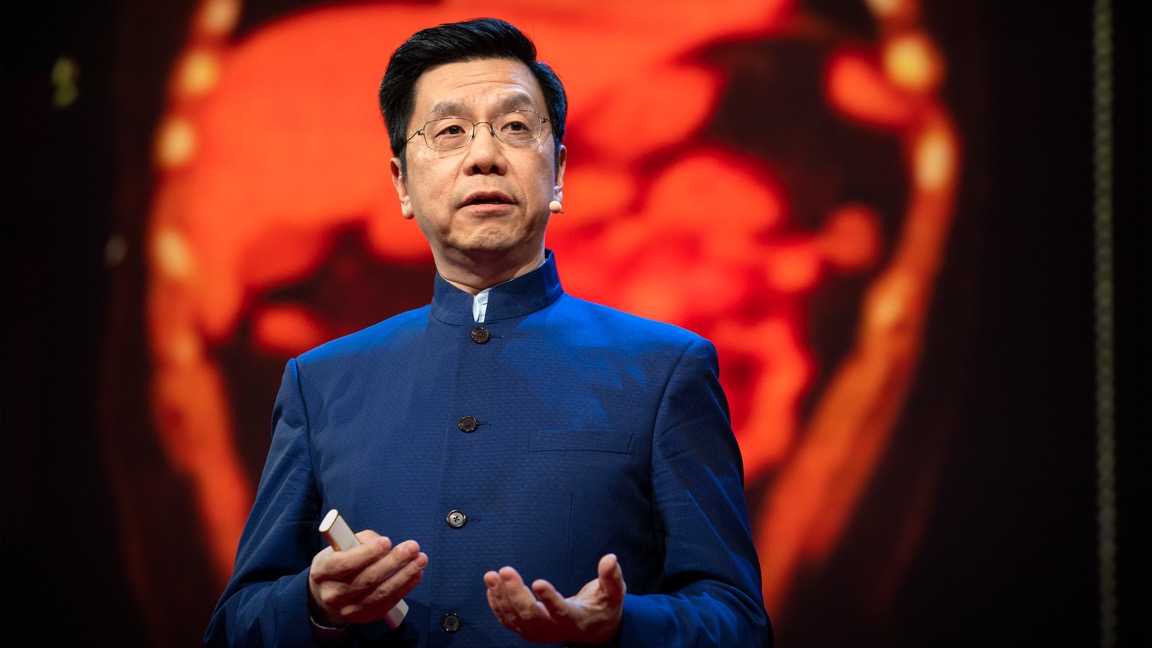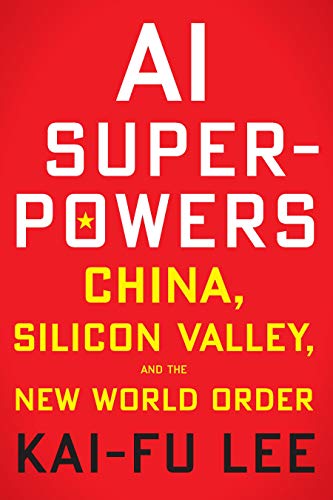James McGregor reviews Kai-Fu Lee’s forthcoming book, ‘AI Superpowers’

I just finished reading an advance copy of my friend Kai-Fu Lee’s book, AI Superpowers: China, Silicon Valley, and the New World Order. The pithy title may boost sales, but it doesn’t do justice to the range of information and depth of the insights he has pulled together. This is a very comprehensive, consequential, and readable book, with elegant narratives of technological, economic, political, and human transitions that crisscross between China and the U.S. and finally blend together to explore the future of our labor markets and social systems.
When the book comes out at the end of this month, my guess is the reviews will focus on Lee’s controversial prediction that within 15 years, AI will have the technical ability to eliminate 40% to 50% of jobs in the U.S. This prediction is alarming, but it is important to point out the “technical ability” qualifier. He doesn’t predict catastrophe. In fact, an exploration of mitigating strategies seems to be his overriding purpose for writing the book.
The core thread is the development of artificial intelligence and how China has significant advantages to lead the industry now that it has gone from the “age of discovery,” which depended upon inventors and elite thinkers, to the “age of implementation,” which depends on data, computing power, and speed of execution.
Previously, all I knew about AI was that it is the hottest topic in technology, top-of-mind and little-understood by multinational bosses and considered by many to be in the same game-changing neighborhood as electricity and the internet. Lee does an excellent job detailing the development of AI and what he terms “the four waves of AI” without losing the reader in “neural networks” and “deep learning” wonkiness.
He also walks the reader through the larger landscape of Chinese business today, focusing on the development of China’s behemoth internet companies and the effectiveness of the country’s legions of hungry and tireless entrepreneurs. In his view, they have gone from “copycats” to “gladiators” in order to survive “the most cutthroat competitive environment on the planet.”
He explains that China’s advantage in AI development goes beyond the competitive edge provided by escaping the much tighter data privacy restrictions that exist in Europe and the U.S. The business models of Chinese tech companies enable the real-time chronicling of people’s lives, while Google and Facebook are limited to recording their users’ online activities through their likes, searches, photos, videos, and posts. Chinese online data tracks physical lives as well as online lives to create a very comprehensive, all-encompassing picture of Chinese individuals and their behavior, emotions, psychology, and even ideology. The country’s ubiquitous mobile apps and payment systems such as Taobao, T-Mall, JD.com, Alipay, WeChat, Meituan, DiDi, Mobike, and Ofo harvest the intimate details of where Chinese people go, when they do things, who they associate with, what they buy, what they eat, who they communicate with, what they talk about, what they think about, and even when and how well they sleep.
“Instead of seeking to outperform the human brain,” Kai-Fu Lee laments, “I should have sought to understand the human heart.”
Western policymakers and business leaders who focus on the limits of China’s system should pay attention to Lee’s non-ideological exposition of what he describes as China’s “highly inefficient and extraordinarily effective” system of “mass entrepreneurship and mass innovation” that is fueled with gushers of cash and empowered by bureaucrats throughout the country who are under Party pressure to out-incubate each other. His belief is that this unique Chinese cocktail of control and chaos is being stirred together with the country’s “kill-or-be-killed” private sector business culture to provide China with significant advantages over the U.S. in developing the coming waves of artificial intelligence applications.
Lee flips from technology to humanity by recounting his personal journey from boy-wonder scientist to globally heralded technologist, entrepreneur, and investor. He describes how he blindly raced through life with an “iron man” lifestyle and a maniacal focus on accumulating online followers instead of relishing friendships and appreciating loved ones. That is, until the diagnosis of stage IV lymphoma and coming face-to face with his mortality brought him the “wisdom of cancer.” This shocked him into a quest to examine the damage technology is doing to human beings and their livelihoods.
He lays out “A Blueprint for Human Coexistence with AI” that explores such concepts as universal basic income, guaranteed minimum income, and job sharing. He says that society needs to “reconstruct our economies and rewrite our social contracts” to reward socially beneficial activities the same way we do economically productive activities. To fund this transformation, he calls for extracting heavy taxes from the companies and individuals who get ridiculously rich as the winners in the AI race.
Lee finishes by saying that he is proud of his accomplishments as an AI researcher and scientist. But he also regrets that his priorities have been misplaced. “Instead of seeking to outperform the human brain,” he laments, “I should have sought to understand the human heart.”
I hope the tech tycoons of China and the Silicon Valley pay attention to Lee’s message.






